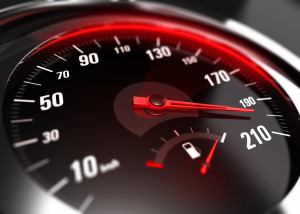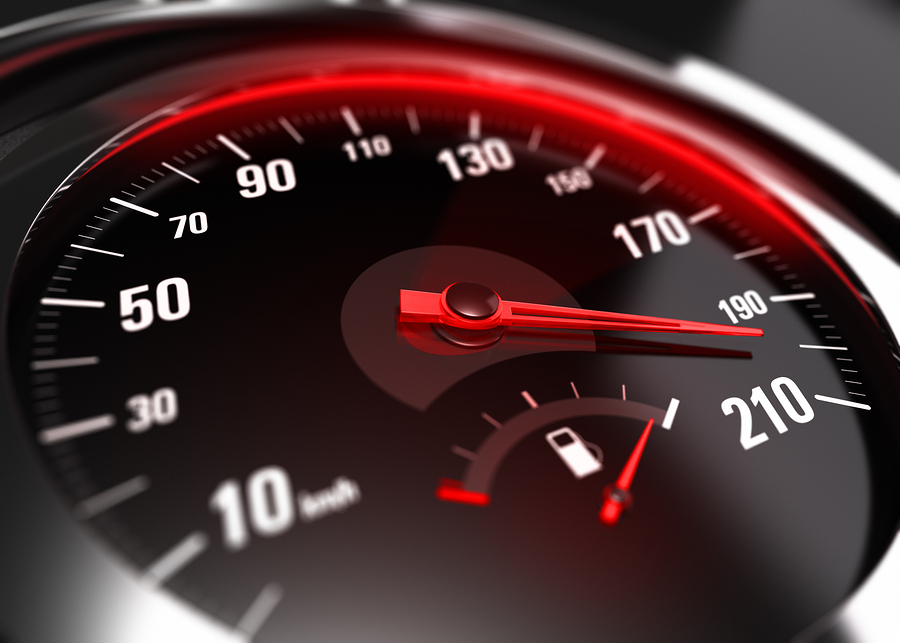It goes without saying that auto accidents can cause tremendous physical damage, not only to the vehicles themselves, but also to the vehicle occupants and any cyclists or pedestrians near the site. While all car accidents can be destructive, accidents caused by aggressive driving can be especially devastating because of the violent motions and excessive speeds which are often involved. But what, exactly, is aggressive driving? Does Arizona have aggressive driving laws? And, perhaps most importantly for auto accident victims, are aggressive drivers liable for damages resulting from their behavior on the road? What kinds of damages are available? Car accident lawyer Jerrold Mayro explains the basics.
Arizona Aggressive Driving Laws and Definitions
You know an aggressive driver when you encounter one on the road — but how is aggressive driving actually defined by law?
Unfortunately, many states have not formally enacted any aggressive driving legislation at all. In fact, the Governors Highway Safety Association (GHSA) report of July 2015, notes only 15 states have addressed aggressive driving laws, among which only 11 actually passed laws specifically defining aggressive driving behaviors.
Arizona is among these 11. In accordance with A.R.S. § 28-695(A)(1), a motorist engages in aggressive driving when he or she creates an “immediate hazard to another person or vehicle” and:
- Either (1) violates A.R.S. § 28-701(A) by speeding on a highway, or (2) violates A.R.S. § 28-701.02 by speeding by excessive speed, and also engages in at least two of the following actions:
- Disregarding traffic lights, road signs, and other “traffic control devices.”
- “Overtaking and passing another vehicle on the right by driving off the pavement. …”
- Making an “unsafe lane change,” such as failing to signal.
- Tailgating (“following a vehicle too closely”).
- Failing to yield right-of-way.
With regard to the above definitions, it’s important to note that “excessive speeding” has different meanings depending on the type of setting in which the speeding occurred. A.R.S. § 28-701.02 defines excessive speeding to mean:
- Speeds above 35 MPH when “approaching a school crossing.”
- Speeding more than 20 MPH above the posted limit in residential areas and business districts. (This threshold increases to more than 45 MPH in areas where no speed limits are posted.)
- Speeds above 85 MPH in all other locations.

How is Car Accident Liability Affected?
Aggressive driving is unacceptable conduct which poses a risk to the safety and well-being of all other motorists and pedestrians sharing the roadways. In fact, Arizona has even criminalized aggressive driving, making it a Class 1 misdemeanor punishable by a maximum fine of $2,500 and up to six months in jail. Class 1 misdemeanors are the most serious misdemeanors under Arizona law. Aggressive driving punishment also includes attending and successfully completing traffic school sessions. The law allows for driving privileges to be suspended for thirty days.
Of course, the criminal aspect of aggressive driving falls to prosecutors. More pertinent to injured accident victims and their loves are the civil claims that arise from an accident.
A driver is generally liable for injuries he causes if he didn’t act as a reasonably careful person would have. Damages may include pain and suffering, loss of enjoyment of life, medical bills, lost wages and property damage. However, where the accident resulted when the other driver was aware of his driving and knew that it created a “substantial risk of significant harm to others,” punitive damages may also be awarded. Punitive damages are given to punish the driver, deter the driver and deter others from harming our community. Interestingly, the law has given the term “evil mind” to describe the state of mind necessary to be able to obtain punitive damages. Other examples of “evil mind” include, where a driver intended to cause injury or was motivated by spite or ill will. Obviously, aggressive drivers may be subject to punitive damages.
While each accident must be evaluated on a case-by-case basis, Plaintiffs are strongly advised to take prompt action and contact a personal injury lawyer as soon as possible. Time limitations apply. Also, the plaintiff normally has the burden of proof (also called the burden of persuasion). The longer you wait to consult with an attorney, the less time will remain to promptly investigate; this may result in not being able to locate key witnesses, memories fading, physical evidence being modified or destroyed as well as other harmful results.
If you were seriously injured in a car accident, or if one of your loved ones was a wrongful death victim, you may be entitled to compensation for your pain and suffering. Attorney Jerrold Mayro has more than three decades of experience representing auto accident victims, and will help guide you through each and every stage of the legal process. To set up a free case evaluation with Jerrold, call The Mayro Law Firm today at (602) 604-8400.

